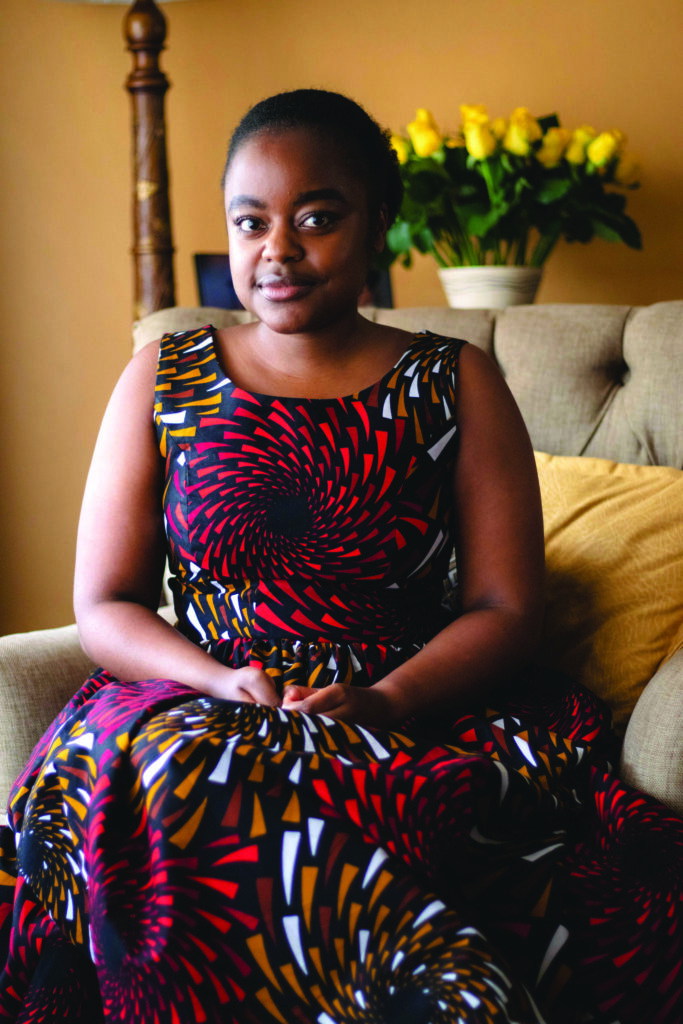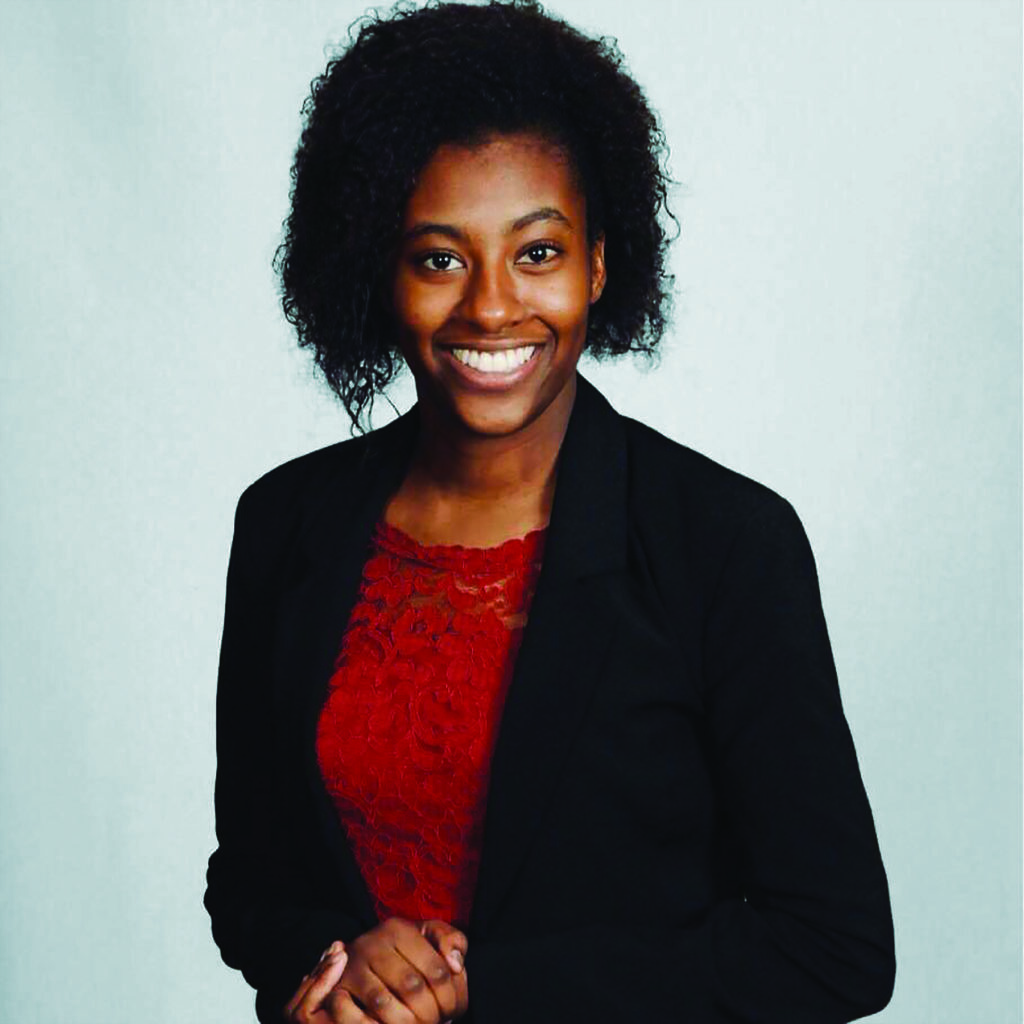
Our Commission
We have work to do.
The year 2020 was one of the most unexpected years for most of us, starting with wars, famines, earthquakes, natural disasters, and ending with a global pandemic that has shaken the world, turning every aspect upside down.
Jesus warned: “All these are the beginning of sorrows” (Matt. 24:8). But the Son of man will come on the clouds of heaven with power and great glory (verse 30).
What a glorious day that will be! Imagine a life with no sorrow, no pain, no tears because all former things have passed away, even the ripple effect of COVID-19. He said it; we can believe it.
When I look forward to 2021, I ask God to renew my faith and the faith of those around me, including those in my church. Church has been one of my greatest anchors. It not only provides the fellowship and warmth of a family—it has been a place of truth, where I can study deeper the love of Him who first loved me.
I hope to see a church family that fulfills the Great Commission to preach the good news to all people (Matt. 28:18, 19). I hope we can allow Him who began a good work in us to see us through until the day of His return (Phil.1:6). I hope for us to manifest the life of Jesus, even though we are “hard-pressed on every side, yet not crushed; we are perplexed, but not in despair; persecuted, but not forsaken; struck down, but not destroyed” (2 Cor. 4:8, 9). That we may look at His Word afresh and be renewed, to carry on the special work that we have been called to do. I pray for unity and that we may all be one, just as He is one with the Father (John 17:22).
Most of all, I pray that as a church in 2021, with renewed vigor, we’ll be reminded of His promise: “Surely I am coming quickly” (Rev. 22:20). Let’s unanimously respond with shouts of acclamation: “Amen. Even so, come, Lord Jesus.”
Ellen Njeri, recently married, lives in Nairobi, Kenya.

Imagine That
Turning dreams into reality
My hope for the church is for it to become even more focused on being welcoming and kind to its members and visitors. With people slowly emerging from
the isolation of COVID–19, churches should be places where they can once again feel the embrace of Christlike love.
I struggle with the uncertainty of human behavior. I find it tough to look for love, value, and acceptance in others, only to see it fail or fall short. We’re all only human. We all face our own challenges and struggles to meet the needs of others.
But the desire to give and receive love makes us who we are. After all, we were made in the image of God, and God is love! We should show that love to others. If we fail to show it, perhaps we don’t understand Christ or Christianity.
Imagine this: it’s Sabbath morning, you’re getting ready to go to church. As you get into the car you’re not anxious about bumping into the elder you think is upset with you after a heated church board meeting—because that won’t happen. You aren’t thinking about your Sabbath School study group judging you for not completing the lesson study—because that won’t happen.
You arrive at church and are greeted by smiles and someone asking how your week went. Someone approaches and says, “Thanks for helping me fix my garden fence; you’re a lifesaver. I thank God for you.” In the service you feel comfortable enough to share a prayer request because you’re not afraid that the congregation will judge you.
After the service you get lots of invitations to join fellow believers at their home for lunch or just to hang out. You trust them the same way you trust a family member or friend.
Why do we have to imagine this? Surely this happens in churches all over the world.
This is my dream for the church, to become more welcoming and show genuine Christian love to a world that seriously needs it.
Andrew Lombart serves as a careers coach to university students in Canterbury, United Kingdom. He is discovering a passion and call to ministry.

Getting Together
We need each other.
I hope that 2021 will bring about real and personal change for everyone in our church family and result in true togetherness.
We often build on a foundation we didn’t build. As a church we stand on the solid foundation that our Adventist forebears built. We cannot, however, just look at the past. I hope we will take the initiative to read the Bible for ourselves and ask the Spirit to guide us as we study together.
An underlying current of racism is present in our societies, and may appear even in some
Adventist congregations. I hope that in 2021 we will be able to truly see each other and embrace one another in true togetherness.
I wish 2021 will be a year in which we care genuinely for our neighbors in our communities. If COVID-19 has taught us anything, it’s that people need people. We saw that in something as simple as people coming out every Thursday evening to show appreciation to the medical professionals who served on the front lines of battling the pandemic, as happened in the United Kingdom where I live. We enjoyed stepping out to see other smiling faces.
Many have struggled during the pandemic when families haven’t been able to visit older family members and check up on them. I hope that next year we can all work together to build a stronger connection between generations.
As parents let’s invest more to help our children connect to their Saviour and their church family..
I wish that we can each be true to ourselves. Instead of reflecting inward, maybe we can use this time of isolation to look outward. After all, Jesus said, “Love your neighbor as yourself” (Matt. 22:39).
Last, like everyone else I wish that 2021 will bring us closer to the return of Jesus Christ. I hope that we will all be better prepared to meet Him.
Preethy Christopher, 33, lives in the United Kingdom with her husband and daughter.

His Church, His Identity
Church: a social organism, a place, a building, a people—these are some of the attributes associated with the idea of church. While all these are correct, the definition that most closely relates to what we find in sacred text is “the body of Christ.”
We are living in an era of unprecedented technological advances and innovations. This allows, at least for those digitally connected, for maximum access with minimum effort, at an affordable expense for practically anything—from how we get our food to where we get pursued. It’s a universe of apps, channels, pages, profiles, and an unending array of links. Fortunately or unfortunately, these have categorically modified our lifestyles, shifted our priorities, and shaped our idea of the world as a whole, including that of the church.
Despite the ubiquity of the gospel, there still seems to be a disconnect between the church and those it seeks to reach. Church ministers and congregations passionately continue to embark on missions of seeking and saving those who are lost.
This statement, pronounced decades ago, continues to be true. Also true of the times we live in is the undeniable reality of “cancel culture” and an era of “spirituality” over religion. Cancel culture guarantees that individuals, institutions, and organizations are susceptible to being ostracized and marginalized should they choose to stand by values and morals that do not align with those of popular belief. Spirituality over religion guarantees that individuals who know the Word but choose to apply only certain parts of it have an alternative.
The church must embrace its identity as the body of Christ regardless of the polarization prophesied in the Bible. In line with Christ’s mission we are to invite those who genuinely try to live a God-seeking life preparing for the kingdom.
My hope for the church in 2021 is that it unapologetically embraces its identity, which is Christ. Everything else will fall into place. Solutions to issues of race, music, worship styles, even leadership will become more apparent because God is not a God of confusion (1 Cor. 14:33).
We have to reevaluate and align with Him. The time is now, for the Son of man is even at the door. So church, let’s boldly embrace the attributes of Him who died so that we could take on His identity.
Naomy J. Rodrigues, originally from Cape Verde, is a 2020 graduate of Washington Adventist University. She lives in Maryland, United States, and will attend law school this year.



